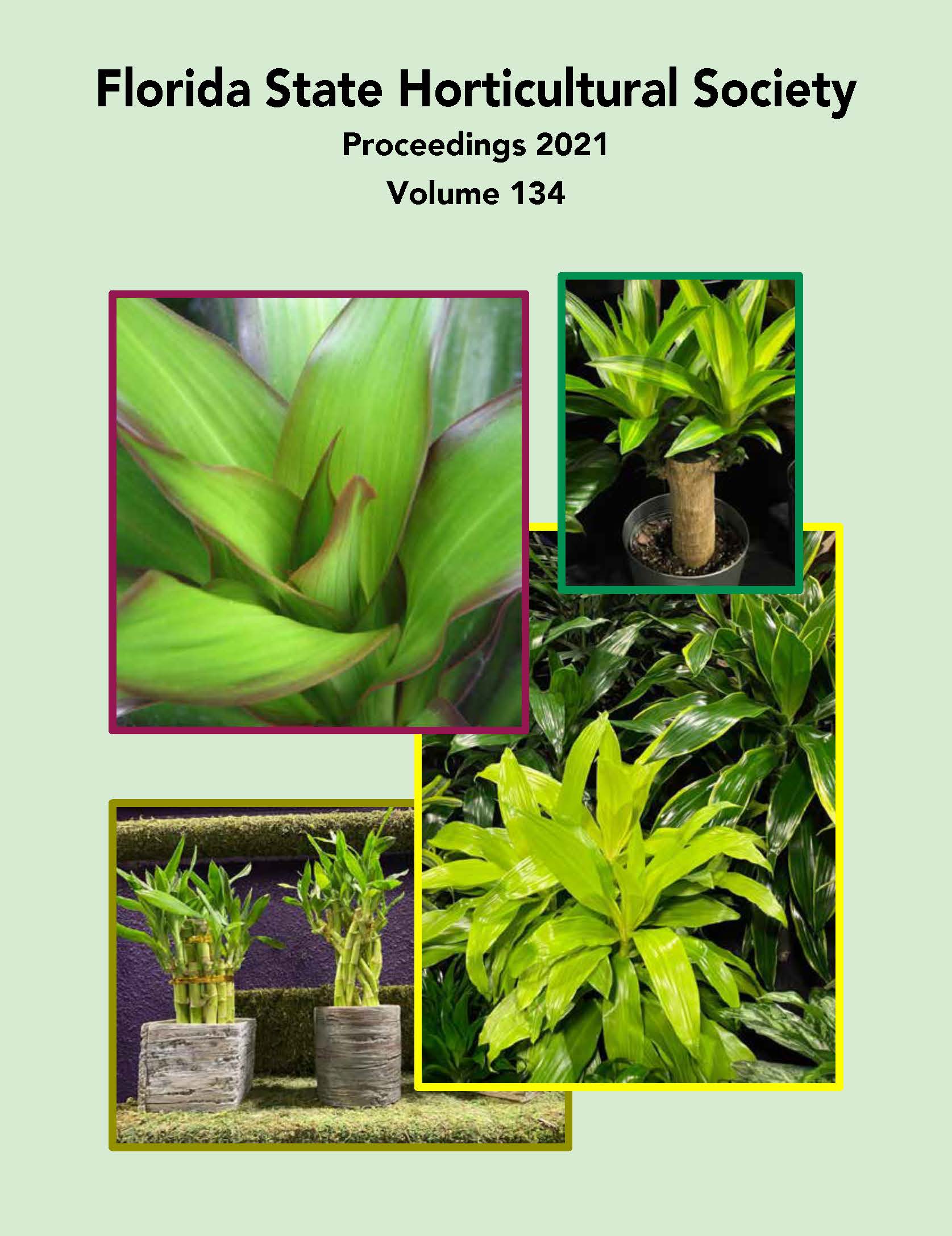Resumen
Tea (Camellia sinensis) is emerging as a potential specialty crop for Florida, but quality evaluations of Florida-grown tea have not yet been reported. Phytochemicals contributing to tea quality include phenolics, such as catechins, tannins, and flavonoids, which contribute astringency and bitterness. We harvested two varieties of Florida-grown tea and processed them into green tea, then evaluated each variety of made-tea for total phenolics (TP): ‘Fairhope’, sourced from Alabama and ‘Georgian’ from Mississippi State University. Both have been growing in North-central Florida since 2016. TP levels were comparable to commercially-sourced green tea in both methanolic extracts and hot water tea infusions, measured as milligrams of catechin equivalent (CE) per gram dry weight of made-tea. In methanolic extracts, ‘Fairhope’ had 99.67 ± 5.77 mg·g-1 CE and 91.90 ± 5.54 mg·g-1 CE in July 2020 and May 2021 harvests, respectively. ‘Georgian’ extracts had 106.27 ± 5.96 mg·g-1 CE and 124.86 ± 6.46 mg·g-1 CE in July 2020 and May 2021 respectively. A commercially-sourced green tea showed TP levels of 81.58 ± 5.22 mg·g-1 CE. There were no significant differences (P = 0.05) between spring and summer harvests, or between the Florida-grown teas and the commercially-sourced tea, except for the May harvest of ‘Georgian,’ which had higher TP than both ‘Fairhope’ and the commercial standard. Hot water infusions of made-tea from the 2020 harvests of ‘Fairhope’ and ‘Georgian’ and the commercial control also did not differ significantly, with 25.95 ± 2.94 mg·g-1 CE, 30.55 ± 3.19 mg·g-1 CE and 24.19 ± 2.86 mg·g-1 CE, respectively. This work indicates that Florida-grown tea has phenolics levels of suitable quality for processing and marketing as green tea.

